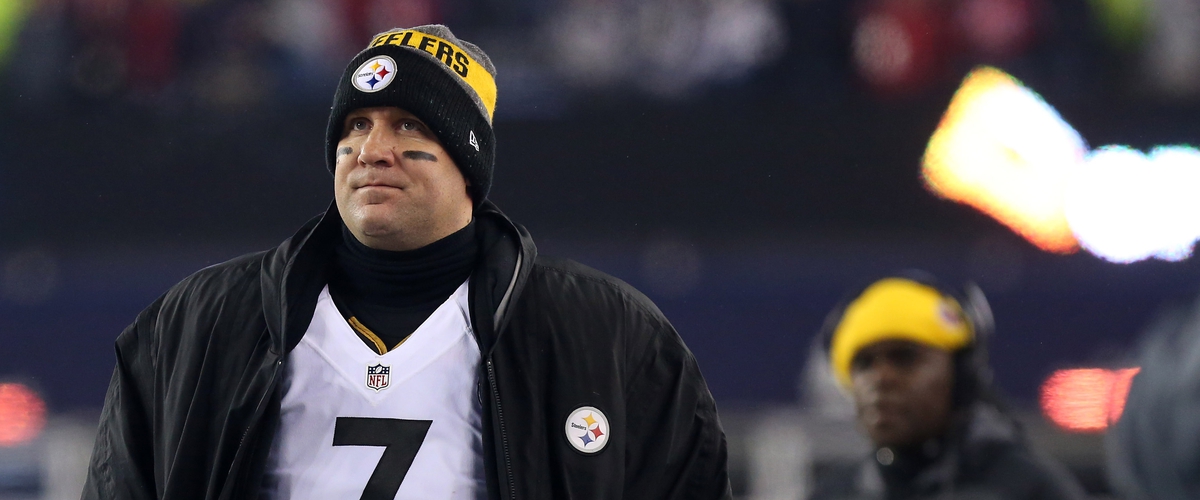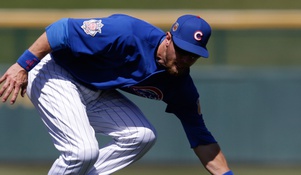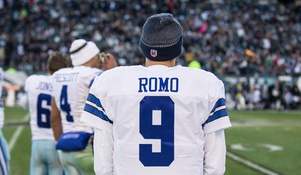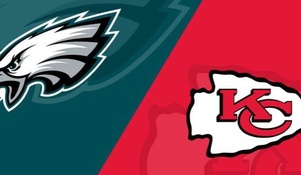How do the Steelers prepare for life after Ben Roethlisberger?

When Ben Roethlsiberger appeared on his weekly radio show last Jan. 24, he turned Pittsburgh upside down.
Once a week during the past couple seasons, Roethlisberger would join a local sports radio program via phone for “The Ben Roethlisberger Show.”
Typically, Roethlisberger spent the time recapping the past week’s game and how he was preparing for the next game on the schedule. The hosts and the quarterback regularly made the show a light but informative hour of radio.
The two-time Super Bowl winner gave the perfectly bland but informative answers that professional athletes are practically programmed to communicate to the media.
But something changed on this particular Tuesday.
After the show started with talk about the sting of the loss to the New England Patriots in the AFC Championship Game only two days earlier, the 34-year-old Roethlisberger was asked how much time he felt that he had left in his NFL career.
“I don’t know.”
That’s the first thing that came out of Roethlisberger’s mouth. No hesitation.
“I talked to my wife about it last night and I talked to my agent about it, (talked to) coach about it,” Roethlisberger said.
Roethlisberger talked to those three people about it the night after the Steelers were pummeled by the Patriots, 36-17?
“I’m going to take this offseason to evaluate, to consider all options,” Roethlisberger said. “To consider health, and family and things like that and just kind of take some time away to evaluate next season, if there’s going to be a next season.”
Steelers Nation held it collective breath.
After how bright things looked for the past few seasons with Roethlisberger, Le’Veon Bell and Antonio Brown leading the NFL’s most explosive offense, was this the end?
Over two months later and the franchise quarterback has still not decided. The general assumption is that since he has not retired by now, he is planning to be back next season. However, an assumption is not a fact and Roethlisberger has yet to give his official stance on the matter.
Regardless, Roethlisberger has three more seasons under contract with a combined cap hit of $64.6 million until his contract expires in 2020.
The matter continues to perplex Steelers fan when considering that 39-year-old quarterback Tom Brady and his Patriots just won the Super Bowl for the second time in three seasons.
Here’s the real kicker though: on Mar. 28, Brady told Patriots owner Robert Kraft that he would be “willing to play six to seven more years.”
If Brady retires after seven more seasons, he’ll be 46. Roethlisberger is 35 and may not step foot on the field ever again.
Despite Brady apparently having discovered the fountain of youth, Roethlisberger is at the age that most quarterbacks begin to consider hanging up their spikes. Hall of Famers Troy Aikman and Terry Bradshaw retired at 34 and 35, respectively. Jim Kelly retired at 36.
Roethlisberger has also taken a beating during his 13 NFL seasons, resulting in three knee surgeries over the past four years.
“There’s a number of things that you know about (Roethlisberger),” Steelers sideline reporter and former offensive lineman Craig Wolfley said. “No. 1 is he is a competitor. No. 2 is that he said he wanted to win more Super Bowls than Terry Bradshaw.”
Bradshaw, of course, was the Steelers first true franchise quarterback and led the team to four Super Bowls. In the 26 years separating the Steelers’ fourth and fifth Super Bowl titles, Pittsburgh made it to the big game just once, falling to the Dallas Cowboys in Super Bowl XXX.
In that 19-year purgatory period separating Bradshaw’s and Roethlisberger’s careers, the Steelers posted seven losing seasons. In the combined 25 years that Bradshaw and Roethlisberger played, Pittsburgh posted just two losing records; both in Bradshaw’s first two NFL seasons.
Sixteen years after Bradshaw led the Steelers to glory in Super Bowl XIV, Neil O’Donnell was the signal caller. His 2,970-yard, 17-touchdown performance in the regular season wasn’t bad, but it was also his final in Pittsburgh. O’Donnell played only five of 13 seasons with the Steelers.
“From Bradshaw (the Steelers) went through Mark Malone, David Woodley, Bubby Brister, it just went on and on and on,” Wolfley said. “Later on, you get Kordell (Stewart), Tommy Maddox, and then all of a sudden, Ben arrives. That’s a big gap in-between. Why? Because franchise quarterbacks are rare. They’re gems.”
If this is indeed it for Roethlisberger, then the Steelers are in trouble. Landry Jones is the only other quarterback on Pittsburgh’s roster, and the veteran would fall far below the lump of average quarterbacks that Wolfley mentioned between the Bradshaw and Roethlisberger eras.
So now the question becomes, how do the Steelers prepare for the inevitable transition from Roethlisberger to the next franchise quarterback?
To Will Brinson of CBS Sports, the process should have begun a long time ago.
“I'd be preparing as soon as the quarterback gets into his second contract,” Brinson said. “That doesn't mean you're drafting a quarterback's replacement as soon as you sign a guy off his rookie deal, but you've got to be ready when you lose your starter, and it happens to everyone eventually.”
Roethlisberger signed his second contract with Pittsburgh back in 2008; a six-year, $87.9 million deal. At the time, that would have been too early to groom a new quarterback. After all, the Steelers went on to win the Super Bowl that season for the second time under Roethlisberger.
“If you look too early,” Wolfley said, “you’re going to lose that younger guy that you believe is the guy, but you still have a great quarterback, you’re going to lose that guy with the rookie contract. It’s a tough call.”
Perhaps the instance that Brinson had in mind was the Green Bay Packers’ transition from Brett Favre to Aaron Rodgers. In 2005, with Favre entering his 15th NFL season, Green Bay selected Rodgers with their first-round pick.
Favre started every game under center from 2005-07, but retired before the 2008 season. To some surprise, Favre came out of retirement shortly afterwards, but the Packers didn’t want him back. They planned to go forward with Rodgers and had prepared him for the starting role.
In his third season as the starter, Rodgers won as many Super Bowls as Favre had in 16 years as a Packer.
Even with Roethlisberger playing hard-to-get on whether he will be back, Brinson isn’t buying an early retirement. However, he stressed that the Steelers cannot delay preparing for the future any longer and must build through the draft.
“The Steelers are in a good position because they have two or three years of Roethlisberger playing so they can evaluate every single class and identify the best possible candidate,” Brinson said. “In a perfect world, they would select a quarterback two years before Roethlisberger retires, to give the youngster time to learn and build in a strong succession plan.”
Since winning it all in 2008, the closest that the Steelers have come was this past postseason. Time is running out on Roethlisberger and a potential run.
If Roethlisberger catches the Steelers off-guard and retires before Pittsburgh has prepared a capable future replacement, Wolfley says that tanking is not an option because the Steelers are too proud of a franchise to take a year off.
Tanking in recent NFL history helped one franchise make a smooth transition at quarterback. Peyton Manning never took the field in 2011 because of neck surgery that never allowed him to be cleared for a game. In Manning’s first 13 seasons, the Indianapolis Colts posted 11 double-digit win seasons and appeared in two Super Bowls, winning one (XLI).
However, without Manning, Indianapolis went 2-14 in 2011 and got the top pick in the 2012 draft. The prize? Andrew Luck, who immediately led Indianapolis to three straight double-digit win seasons before injures and mediocre supporting cast produced back-to-back 8-8 seasons.
Regardless, the Colts were able to bypass the quarterback carousel that the Steelers endured from 1984-2003. Luck hasn’t won a Super Bowl, but he’s proven that he’s an elite quarterback capable of winning a championship given the proper talent around him.
“The Colts got incredibly lucky because one of two "can't miss" guys (Manning) in the last 25 years of the draft happened to have four neck surgeries the year before the other "can't miss" guy (Luck) came into the draft,” Brinson said. “One might assume they have a giant horseshoe sitting somewhere the sun doesn't shine.”
Tanking is not a slam dunk. The Colts got lucky, but the Cleveland Browns have tried the same method since returning to the NFL in 1999. With losing seasons in all but two years, Cleveland has tried everything from Tim Couch to Johnny Manziel, but none have delivered the Browns to the postseason, much less a Super Bowl.
“Without franchise quarterbacks, you simply can’t compete for the Super Bowl,” Wolfley said. “The days of a Trent Dilfer-type quarterback and a record setting defense like the Baltimore Ravens back in 2000, that’s a rarity. You’re not going to see that anymore.”
This article first appeared on pittsburghsportsreport.com






